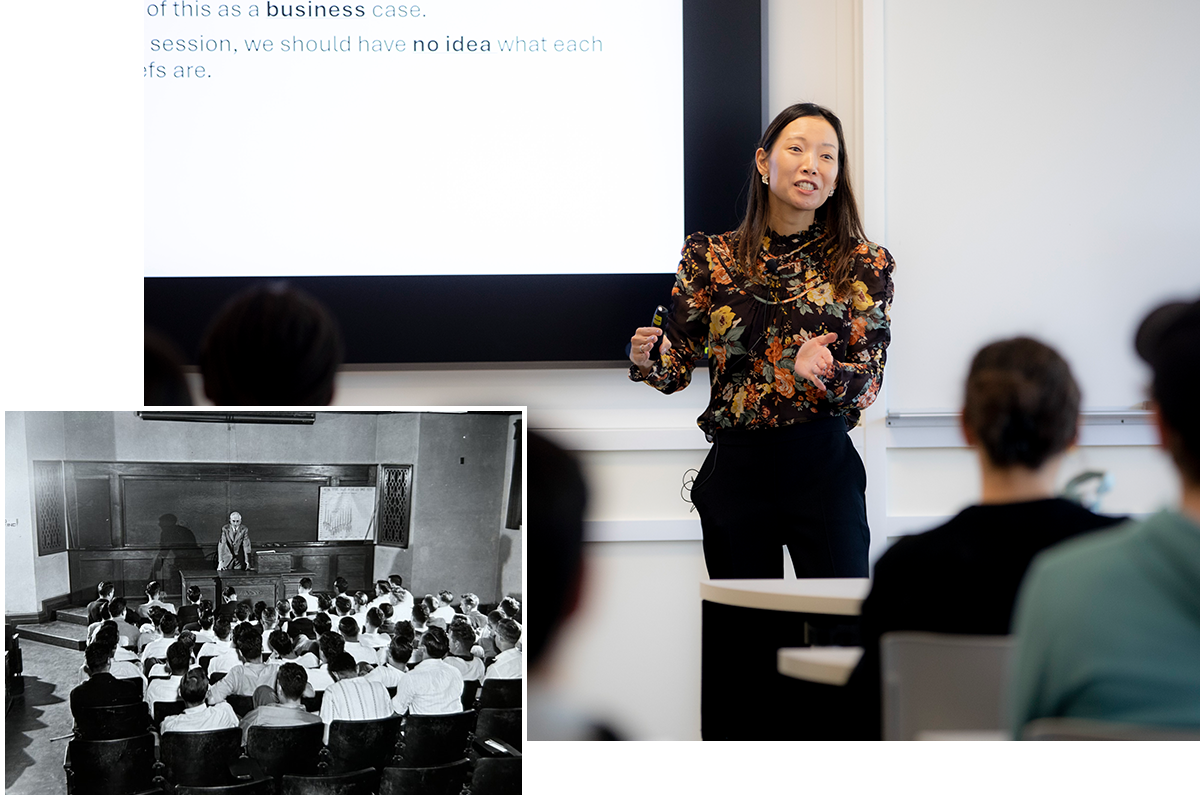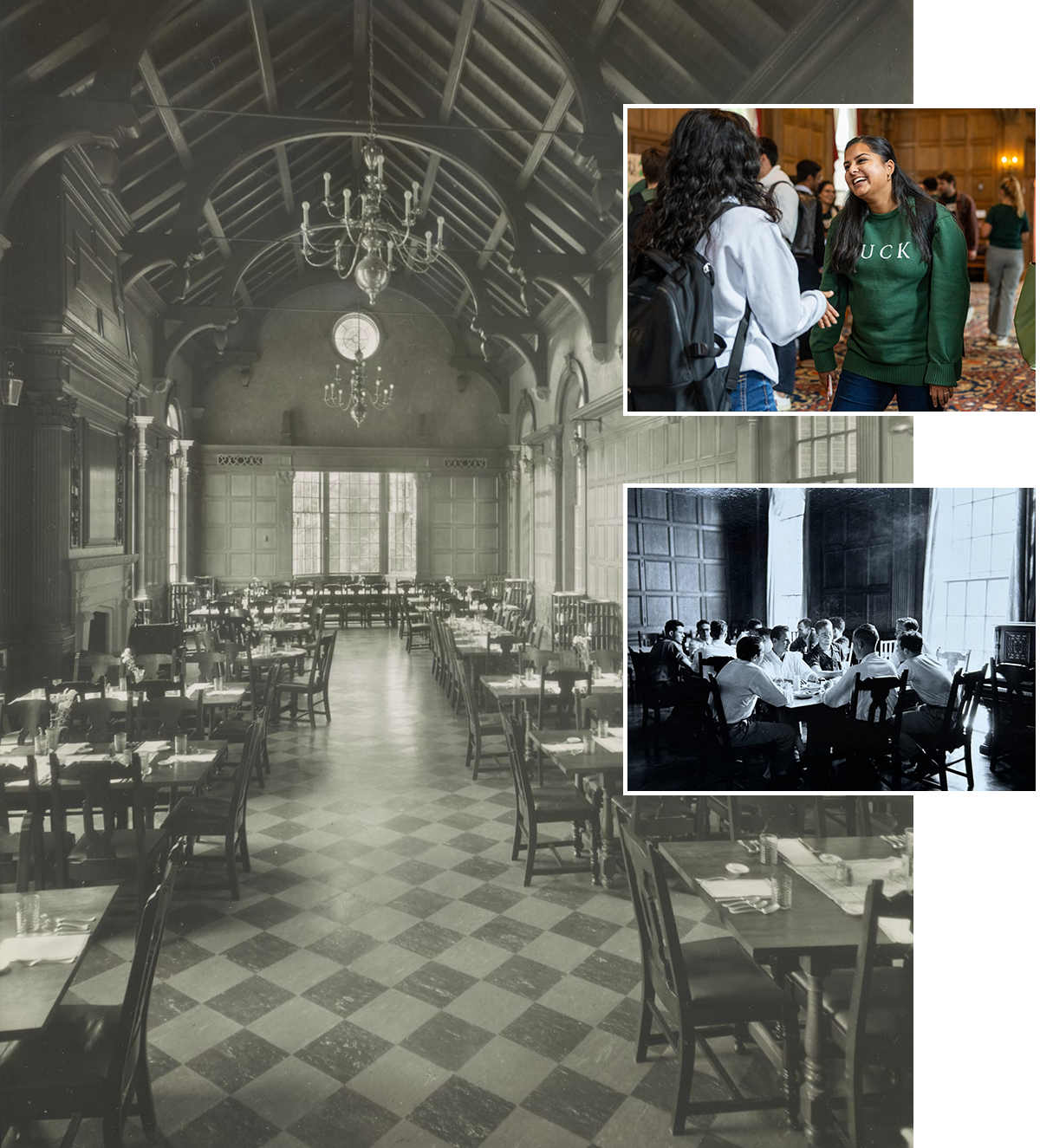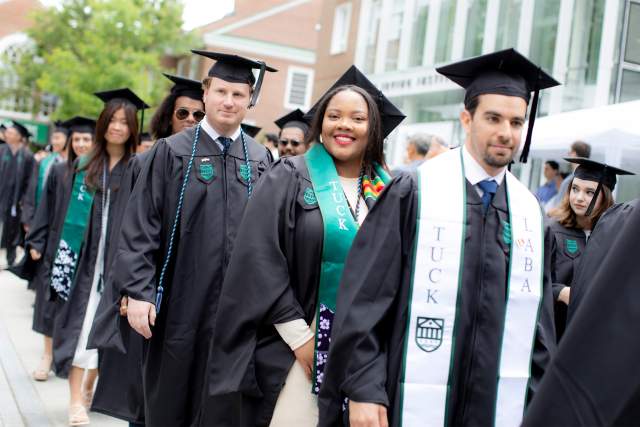
“Altruism is the highest and best form of egoism.”
One hundred and twenty-five years ago, Edward Tuck D’1862 wrote these words in a letter that would become the guiding ethos for the world’s first graduate school of management.
In 1900, Tuck partnered with his former college roommate, then Dartmouth president William Jewett Tucker D’1861, to found the Amos Tuck School of Administration and Finance—a bold experiment that became the prototype for graduate management education.
Named in honor of Edward’s father, the Amos Tuck School opened its doors at the turn of the twentieth century during the height of U.S. industrialization. Tuck and Tucker recognized an opportunity to cultivate well-rounded leaders skilled in business and motivated by a deep sense of social responsibility—leaders guided by integrity and driven by purpose.

Pictured: Edward Tuck and William Jewett Tucker, founders of the Amos Tuck School of Business. | Photos courtesy of Rauner Special Collections Library
Today, 125 years later, Tuck stands stronger than ever, guided by its enduring mission to develop wise, decisive leaders who better the world through business—a mission firmly rooted in Edward Tuck’s altruistic maxim.
“At Tuck, leadership done well has always been about others. Altruism, not egoism, or in today’s Tuck lexicon: bettering the world through business,” says Dean Matthew J. Slaughter. “Despite astonishing changes in the world, the global economy, and higher education, this approach to leadership has been invariant throughout Tuck’s history and fundamental to our success.”
Slaughter believes the demands of 21st-century leadership are unlike any before. The world sits at a crossroads of immense opportunity—for artificial intelligence, globalization, and climate solutions—as well as potential decay marked by eroding trust and stark social divides. In this uncertain environment, business leaders have emerged as the most trusted force for change.
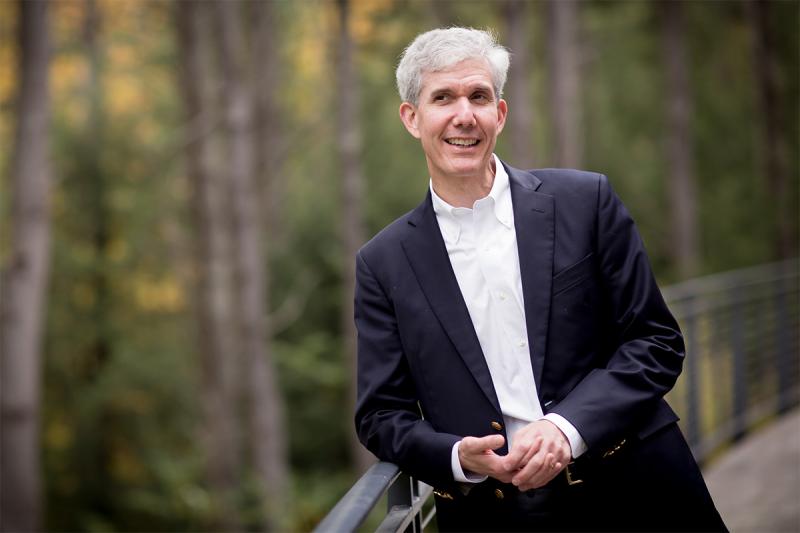
The way Tuck does business education—transformative rather than transactional—is uniquely suited to meet the needs of the world today and into the future. This new era calls for leaders who prioritize communication, collaboration, and ethical decision-making—qualities deeply embedded in our school’s data-informed, trust-based learning community.
— Dean Matthew J. Slaughter
“The way Tuck does business education—transformative rather than transactional—is uniquely suited to meet the needs of the world today and into the future,” he says. “This new era calls for leaders who prioritize communication, collaboration, and ethical decision-making—qualities deeply embedded in our school’s data-informed, trust-based learning community.”
Hewing to its core values, Tuck has continuously evolved and innovated to meet the needs of students and the organizations that hire them. The Master of Commercial Science, the first advanced degree offered by the school in 1900, was conferred for more than 50 years until it was replaced by the MBA in 1953. That same year, Tuck’s all-male enrollment totaled 86 students. The current first-year class, the Class of 2026, is 296 students strong and 44 percent women. Nearly 30 percent of T’26s are international students, another 30 percent represent U.S. minorities, and 15 percent are first-generation college graduates. Meanwhile, new degree and certificate programs have further expanded access to business education for undergraduates, working professionals, minority entrepreneurs, and more. The school’s most recent capital campaign, The Tuck Difference, raised a record $416 million—a testament to Tuck’s famously loyal alumni network and commitment to shaping leaders ready to address our world’s wickedest challenges.
“The reason Tuck is still here, like any enduring organization in business or the public sector, is because we have innovated in ways large and small along the way,” says Slaughter. “We listen to the needs of the world and what we do within and outside of the classroom is a continuous effort to iterate, evolve, and grow to meet those needs.”

Tuck’s most recent capital campaign, The Tuck Difference, raised a record $416 million—a testament to Tuck’s famously loyal alumni network and commitment to shaping leaders ready to address the world’s most complex challenges.
An Extraordinary Learning Community
Before the Tuck School opened its doors, there had never been a graduate-level academic program created for the sole purpose of training students in the fundamental principles of business.
Anchored to its foundational core curriculum, Tuck has since prepared generations of graduates to navigate ever-changing markets, industries, and technologies.
“The core continues to provide an incredibly strong foundation for students as they progress through Tuck and launch their post-MBA careers,” says Senior Associate Dean for Teaching and Learning Joe Hall. “There are many schools where MBA students can determine right away, ‘I want to be a marketer,’ and they’ll take a whole bunch of marketing classes and not much else. While that may be okay in the short term, as Tuck graduates advance into leadership roles, broad exposure to the different functional areas of business is increasingly important and makes them much more agile throughout their careers.”
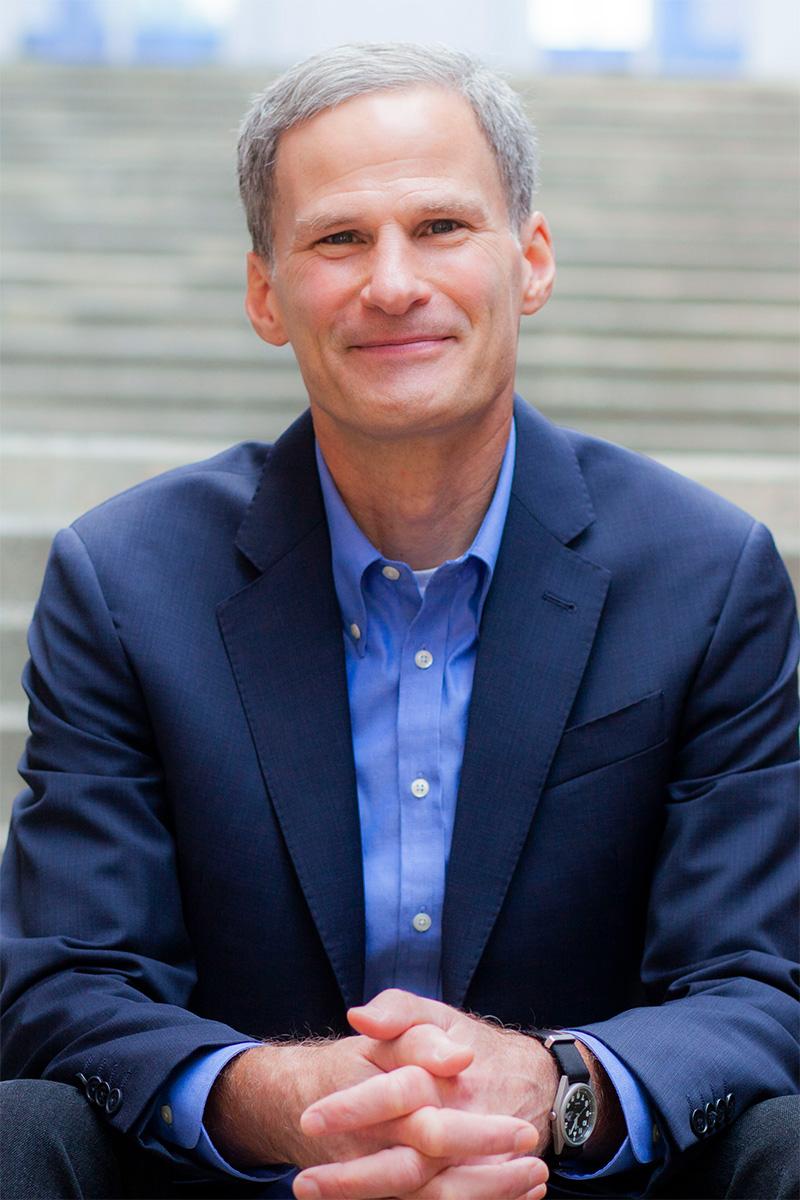
“As faculty, we all appreciate that we operate in an environment where we have to compete for the best students and help put them in a position to compete for the best jobs. That striving for excellence permeates everything we do.”
—Joe Hall, Senior Associate Dean for Teaching and Learning
A trust-based, data-informed learning community, Tuck creates an environment where students are strongly encouraged to stretch themselves and explore new ideas. Assigned study groups provide a built-in support system for students to learn to give and receive feedback while gaining vital experience working within teams, and the curriculum today includes numerous opportunities to build upon the classroom experience and apply lessons in real-time.
Examples include the core First-Year Project (FYP) course which invites teams of students to apply their learning from the first year to address a problem impacting a real business client or to launch their own startup. The Bakala TuckGO program encompasses a portfolio of courses that satisfy Tuck’s global learning requirement. This includes popular Global Insight Expeditions (GIXs)—short, faculty-led courses that explore a timely business topic in locations around the world, such as Ghana, Vietnam, Australia, and Chile.
Tuck’s six centers offer a diverse set of co-curricular experiences for students to explore career interests and develop their network in areas like private equity and venture capital, health care, energy, government, entrepreneurship, and technology. One of the school’s most recent innovations, Tuck Compass, was launched in 2023 to help students better integrate their experiences and chart a transformative path through, and beyond, the two-year MBA journey. A key component of Tuck Compass is the Personal Board of Advisers (PBA), comprised of Tuck alumni, a career services adviser, an MBA program adviser, a leadership coach, and other mentors. PBA members share their wisdom and counsel, support decision-making, and offer accountability as students define and pursue their personal goals.
Another area where growth and innovation are readily observed is in the more than 110 distinct elective courses Tuck offers. Hall estimates roughly half of these electives have been introduced in the past 10 years.
“Academia isn’t always regarded as being particularly fast-moving and agile,” says Hall. “It’s a credit to the effort and creativity of our students and faculty, and the learning culture we’ve built, that in the last decade, we’ve essentially updated half of the electives we offer.”
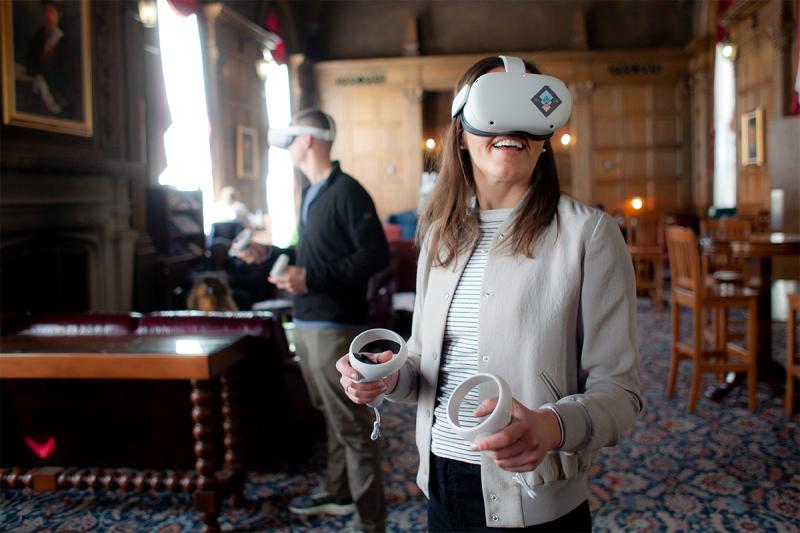
Today, Tuck offers more than 110 distinct electives, including new courses AI-Driven Analytics and Society and Leading Diverse Organizations. | Photo by Laura DeCapua Photography
In 2022, the school also introduced two new elective course types: Sprints and Practicums. Sprint courses allow for the exploration of a timely, emergent, or topical subject that is not currently covered in the Tuck curriculum. The short-term format of Sprints allows faculty to “stand up” a course quicker than a full-term offering, leading to more faculty from across Dartmouth now teaching at Tuck. This includes Devin Singh, an associate professor of religion at Dartmouth who launched the popular Sprint course Money, Meaning & Morality last year.
Practicums emphasize the application and expansion of knowledge acquired from other courses through hands-on, live project work. Overall, Slaughter says the innovations in Tuck’s curriculum reflect a deeper pedagogical shift that has taken place during the past
several decades.
“Business education of the 20th century was largely focused on transmitting knowledge,” he says. “Today, at a time when access to facts and frameworks is available at almost no marginal cost for any human on the planet, business education is more about preparing students to use, apply, and connect knowledge across disciplines.”
In response to these changes, Tuck continues to invest in its world-class faculty by hiring tenure-track professors with a wide range of business backgrounds. Ten new tenure-track faculty have joined Tuck in the past two years. Through their research and teaching, they are exploring timely topics such as the role artificial intelligence plays in online platform operations, organizational practices to reduce labor market inequality, and the resiliency of pharmaceutical supply chains.
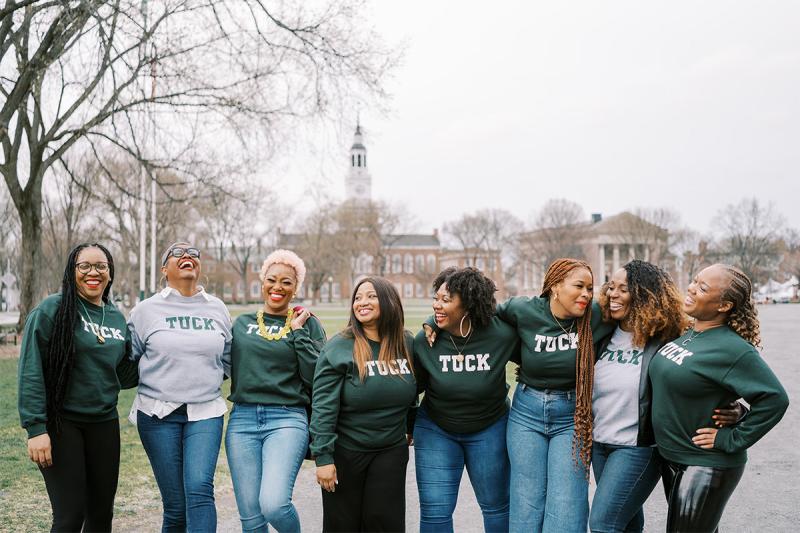
Now in its 45th year, Tuck Executive Education’s Diversity Business Programs deliver high-impact business education to underrepresented entrepreneurs.
Pushing the Boundaries of Business Knowledge
As highly accomplished teachers and scholars, Tuck faculty are not only keeping pace within a rapidly changing business world—they are expanding the boundaries of business knowledge.
Their research has been published in many of the world’s leading peer-reviewed business journals and cited tens of thousands of times by other scholars in their academic papers. Tuck faculty boast the highest number of citations, per capita, of any U.S. business school on SSRN (Social Science Research Network). Scott Neslin, the Albert Wesley Frey Professor of Marketing, is one of Tuck’s most accomplished and longest-tenured faculty members. During his 46-year career at Tuck, he has conducted extensive research measuring and increasing the return on investment (ROI) generated by marketing activities such as sales promotion, customer relationship management, internet marketing, and multichannel customer management.

“As the business world evolves, we must continue researching and bringing new discoveries into the classroom. Our immersive, challenging, and high-touch learning environment perfectly accommodates this process, and I expect that will always be true about Tuck.”
—Scott Neslin, the Albert Wesley Frey Professor of Marketing
“Engaging in scientific research is how faculty develop their expertise. It’s the rigor we use to develop relevant knowledge to bring into the classroom.” Says Neslin. “Teaching plus the changing business environment often generates new research topics, so the work of research and teaching creates a virtuous cycle.”
The close relationship between research and teaching is at the heart of Tuck’s Research-to-Practice Seminars. These small-scale, elective courses leverage a faculty member’s current research to help students become more confident thinkers as they test their ideas against both theory and data. In Professor Julia Melin’s Research-to-Practice Seminar: Equity Analytics in Organizations, students closely examine academic papers from management, social psychology, and economics to learn the analytical rigor required to make data-driven managerial decisions.
Faculty research has a profound impact on the classroom experience at Tuck, but it extends much further. Through their many research endeavors, Tuck faculty have launched new sub-fields of study and developed theories, frameworks, and models that have deepened our shared knowledge of the global business world. As practitioners, they have advised CEOs and consulted with startups and Fortune 500 businesses. They have served in coveted government posts and collectively, they have received hundreds of research and teaching awards.
Tuck faculty have also played a key role in expanding the school’s portfolio of joint-degree offerings, often teaching in the programs. Building on the success of the popular Master of Health Care Delivery Science (MHCDS) program, Tuck recently launched a new Master of Health Administration (MHA) degree in partnership with Dartmouth’s Geisel School of Medicine. The program’s hybrid delivery structure equips working professionals with business and leadership training to advance their careers and deepen their impact in health care.
Offered for nearly three decades, the first-of-its-kind Tuck Business Bridge Program has prepared thousands of undergraduate students from STEM and liberal arts backgrounds with foundational business knowledge and career guidance. Tuck Executive Education (TEE) provides business education programs for leaders, executives, and entrepreneurs, offering actionable frameworks to drive innovation, growth, and value creation within their organizations.
For every audience, the objective remains the same: to provide a personal, connected, and transformative learning experience that only Tuck can deliver.
“There is a virtuous cycle created by the fact that our faculty and students have incredibly high standards for themselves and each other,” says Hall. “As faculty, we all appreciate that we operate in a competitive environment where we have to compete for the best students and help put them in a position to compete for the best jobs. That striving for excellence permeates everything we do.”
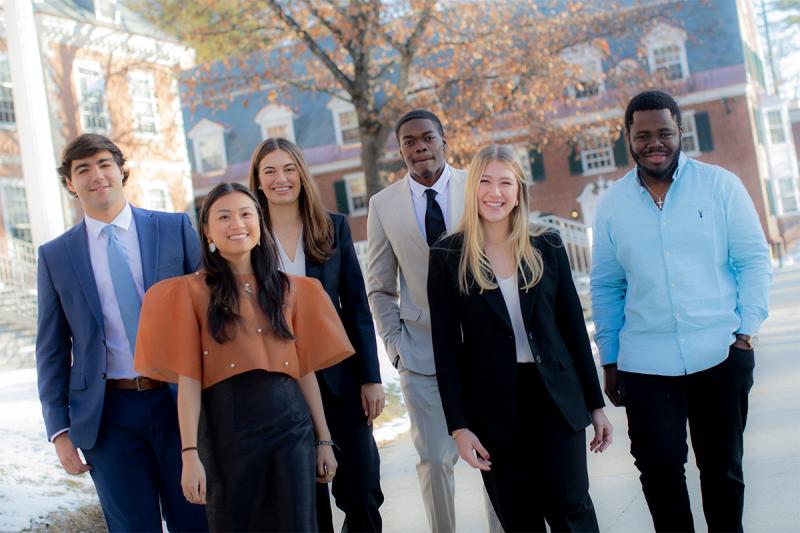
Offered for nearly three decades, the first-of-its-kind Tuck Business Bridge Program has prepared thousands of undergraduate students from STEM and liberal arts backgrounds with foundational business knowledge and career guidance. | Photo by Laura DeCapua Photography
A Culture of Co-Investment
Ask any alum what they cherish most about their Tuck experience and most will relay some version of, “It’s the people.”
Such a sentiment could sound trite if you have never stepped foot on campus, but for those who have, it immediately rings true.
“Anyone who chooses Tuck does so with real purpose and intention about the experience they are seeking,” says Michael Ward T’92, managing director, CFO, and COO of Bain Capital. “It draws people who want to study and learn but who are also motivated to invest in each other and the community.”
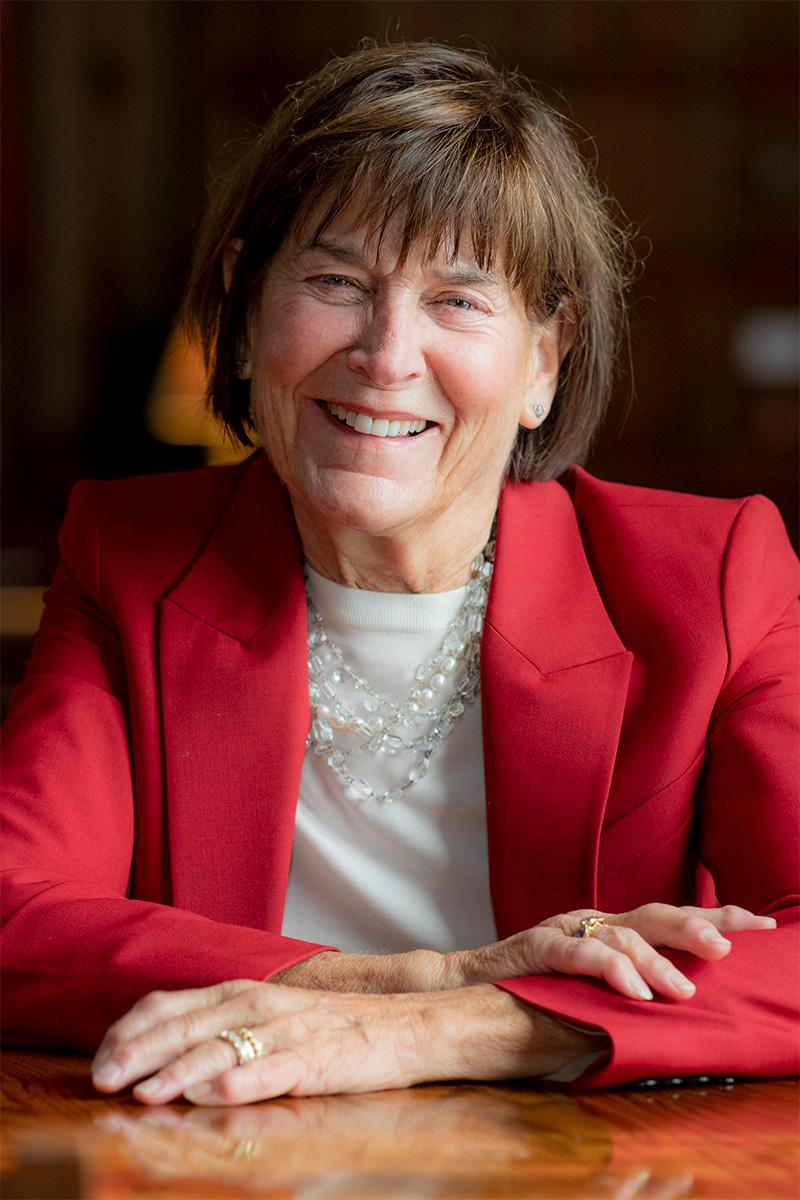
“This shared willingness to dive in and become fully immersed in the [Tuck] experience is an integral part of who we are, and I don’t think that will ever change. It’s been an honor and a privilege to be allowed into the lives of so many talented, wise, and kind people.”
—Sally Jaeger, Associate Dean, MBA Program
No one knows the Tuck community and its people better than Associate Dean of the MBA Program Sally Jaeger who first joined Tuck in an admissions role in 1993. What immediately stood out to her was the buy-in and co-investment among students, faculty, and staff in creating a community where everyone is inspired to bring their whole selves to the table.
“This shared willingness to dive in and become fully immersed in the [Tuck] experience is an integral part of who we are, and I don’t think that will ever change,” says Jaeger. “It’s been an honor and a privilege to be allowed into the lives of so many talented, wise, and kind people.”
Since transitioning from admissions to the MBA Program Office in 2004, Jaeger has helped thousands of students thoughtfully navigate their two-year Tuck experience, including T’25 Class President Alison Nordell. As someone who always preferred the roles of supporter, facilitator, and optimizer, Nordell says running for student body president and getting involved in other Tuck clubs and activities has helped her grow as a leader and become more confident in the spotlight.
“Tuck has opened so many doors for me to practice new skills and develop my strengths,” she says. “I’ve felt encouraged to challenge myself knowing I have the support of this incredible community behind me.”
Assistant Dean of Diversity, Equity, and Inclusion Dia Draper says having that foundation of care and support is key. She believes part of what distinguishes Tuck is a shared concern and attentiveness to what individual students or community members are going through.
“It is pretty rare to work at a place where anyone—student, faculty, or staff member—can be walking around, any time of day, and if they don’t look like they’re doing okay, we stop to check in on each other,” says Draper. “That has always been part of our culture.

“We need to make sure that once students leave Tuck and return to the corporate world, they know how to lead and to be managed by people who are different from them. It is about developing leaders who can get the best out of their teams by understanding what each person needs to be successful.”
—Dia Draper, Assistant Dean for Diversity, Equity, and Inclusion
The talented and vibrant community on campus today owes much to trailblazing alumni, including the late Herb Kemp Jr. T’66, Tuck’s first Black graduate; Martha Fransson T’70, the first woman graduate; and Pamela Scott T’75, the first Black woman to graduate from the school. Their legacies continue through initiatives like Next50, a student-led organization and fellowship program advocating for more diverse case protagonists in MBA curricula, and the Tuck Diversity Conference (DivCo), which celebrated its 30th year in 2024. Student-led clubs and resources like Low-Income First Generation at Tuck (LIFT), founded in 2021, and the Tuck Mental Health and Wellness Initiative which offers peer support counselors, have helped build a strong culture of inclusion and support across Tuck.
“For these trailblazing alumni, I would say their ultimate legacy, what unites them, was a shared goal to make sure they were the last ‘first,’” says Draper. “Their stories inspire us all to consider what we can do to make our community even stronger and more welcoming.”
Tuck has also focused on equipping students with inclusive leadership skills so they can thrive in an increasingly diverse and global business environment. Tuck Dialogues, which debuted last year, convenes discussion about hard issues through honest, open, and respectful dialogue.
“We need to make sure that once students leave Tuck and return to the corporate world, they know how to lead and to be managed by people who are different from them,” says Draper. “It is about developing leaders who can get the best out of their teams by understanding what each person needs to be successful.”
The Next 125
Today’s business leaders face daunting challenges, from inflation and supply chain disruptions to climate change and geopolitical instability. Yet, Slaughter believes that the momentum and culture Tuck has cultivated over its 125-year history has positioned the school—and its graduates—to tackle these challenges head-on.
“Solving the wickedest problems of the 21st century demands a specific type of leadership,” says Slaughter. “It calls for engaging stakeholders and developing innovative solutions. It calls for the type of leadership we have always been about here at Tuck.”
You’re not going to be able to close every door but, by managing new technologies responsibly, we should see extraordinary economic growth. This will require the kind of thoughtful, wise, and forward-thinking business leaders that Tuck creates.
— David Grain T’89
Assessing the vast potential and significant risks of generative AI and other emerging technologies, David Grain T’89 recalls the trepidation many felt during the post-Vietnam War years as the personal computer and internet revolution took hold.
“The concerns then about fraud and other bad things happening on the internet were somewhat validated. However, it also transformed how we live, work, learn, and play, and drove economic growth like we had never seen,” says Grain, founder and CEO of Grain Management. “You’re not going to be able to close every door but, by managing new technologies responsibly, we should see extraordinary economic growth. This will require the kind of thoughtful, wise, and forward-thinking business leaders that Tuck creates.”
Slaughter points to the 2024 Edelman Trust Barometer, a public trust and credibility survey of 32,000 respondents in 28 countries, to emphasize the private sector’s role in taking on these challenges.
“Who does the general public trust to address these critical issues affecting global health, wealth, and sustainability? The Edelman survey and others indicate it is business leaders, not government leaders, and not leaders in the media,” says Slaughter.
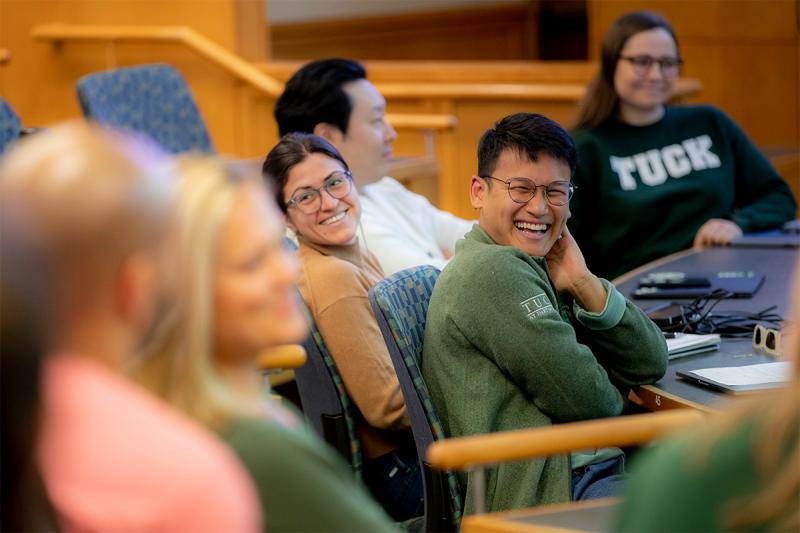
“What we’ve seen and what I think we’ll continue to see is this broader ecosystem of programs built around, and drawing inspiration from, our core MBA program,” says Michael Ward T’92. “There is so much potential still to take that ‘special sauce’ and apply it to other areas.” | Photo by Laura DeCapua Photography
At a time of heightened polarization and distrust, Caryn Nightengale T’02 believes Tuck graduates have an opportunity to set a different tone within the organizations and businesses they lead.
“It’s imperative for leaders to create environments that are inclusive, that foster teamwork, support, and accountability,” says Nightengale, CFO of Unical Aviation Inc. “That’s what Tuck leaders do.”
Meeting the world’s growing demand for wise, decisive leadership will require Tuck to continue innovating within and around the MBA program, particularly through expanded undergraduate and executive offerings. Ward is excited about the possibilities.
It’s imperative for leaders to create environments that are inclusive, that foster teamwork, support, and accountability. That’s what Tuck leaders do.
— Caryn Nightengale T’02
“What we’ve seen and what I think we’ll continue to see is this broader ecosystem of programs built around, and drawing inspiration from, our core MBA program,” says Ward. “There is so much potential still to take that ‘special sauce’ and apply it to other areas.”
Neslin also sees the potential in leveraging Tuck’s historic strengths to meet the emerging needs of Tuck students and the businesses that hire them.
“As the business world evolves, we must continue researching and bringing new discoveries into the classroom,” says Neslin. “Our immersive, challenging, and high-touch learning environment perfectly accommodates this process, and I expect that will always be true about Tuck.”
This article appears in print in the winter 2025 issue of Tuck Today magazine.

